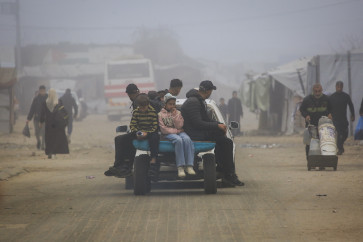Popular Reads
Top Results
Can't find what you're looking for?
View all search resultsPopular Reads
Top Results
Can't find what you're looking for?
View all search resultsThe flaws of the new mandatory student paper publication policy
A new policy was just introduced on Jan
Change text size
Gift Premium Articles
to Anyone
A
new policy was just introduced on Jan. 27 by the Director General of Higher Education requiring all university students to publish academic journals as part of their degrees.
Western tertiary education strongly pushes academics to publish, so for Indonesia a similar approach will enhance the next generation of researchers’ global competitiveness and raise Indonesia’s global profile. However, the question for Indonesia is to what degree the new policy should include all three levels of tertiary education.
It does make sense for Indonesian research students at the masters and doctoral level, where both have to write a thesis, to aspire journal publications. But for undergraduate and coursework masters students, the new policy may face two major challenges.
The first challenge is practicality. The new policy will come into effect in August 2012, leaving little time for universities and students to prepare. Both students and supervising academics lack the experience and expertise to achieve publications in respected outlets at such short notice.
But even longer term, the design of a three- to four-year undergraduate program or a one- to one-and-a-half-year master’s degree is not a realistic framework for students to obtain scientific results that actually warrant a publication. Students at that level are prepared for a professional rather than a scientific career and as such the study pattern is broken up into very specific courses.
Practically, a journal publication takes at least one year (and much longer for well-respected international journals), which is practically impossible for a short master’s degree program. In addition, even papers from experienced scientists and academics with strong research projects often get rejected for publication of their work. This also means that the chances for students to publish their work internationally are minimal.
The second challenge is pedagogical alignment. The objective for undergraduate students is to actually learn about the subjects at hand, such as accounting and marketing, or computing or medical, but not to generate original research. As such, requiring undergraduate students to publish is simply not aligned with the learning goals of preparing undergraduate students for the real job market.
On the other hand, doctoral degrees and masters by thesis programs are in fact designed to educate future scientists and academics at that level, a requirement to conduct research and publish their results is a push in the right direction.
The new policy moves away from Indonesia’s previous “link and match” program that in fact ensured that each industry’s needs for skilled labor were met. Pushing even undergraduate and course-work masters students into science will distract attention and move away resources from the more practical skills needed to enhance Indonesia’s competitiveness in a global workforce market.
Essentially, while this new policy is based on good intentions, it focuses on the wrong target group. The purpose of the new policy is to bring Indonesia close to the Asia-Pacific region such as Australia, Singapore and South Korea in terms of their strong academic publication output.
What needs to be done to achieve this benchmark is not to focus on all university students, but to adapt the Australian model where the system provides resources and incentives at both the university and individual academic’s level to publish in highly ranks international journals.
Doctoral degrees are done by publication where PhD students must publish together with their academic supervisor, resulting in favorable outcomes for both parties, and the university and country overall since all benefit from the publications.
Strong publications result from skills, inspiration, resources and a supportive environment that frees up time for academics to actually conduct the research.
Therefore, the new policy should be repositioned to provide universities and its academics with these resources, but the policy should not focus on undergraduate students to lift Indonesia’s academic record. Funding needs to be provided for Indonesian researchers to design impactful projects, fund international data collection to allow for rigorous analyses and testing, and fund conference attendance to line up global collaboration and networking in academic and professional circles.
Dr. Hamin is a lecturer in business at Macquarie University in Sydney, Australia. Dr. Chris Baumann is a senior lecturer at Macquarie University.










